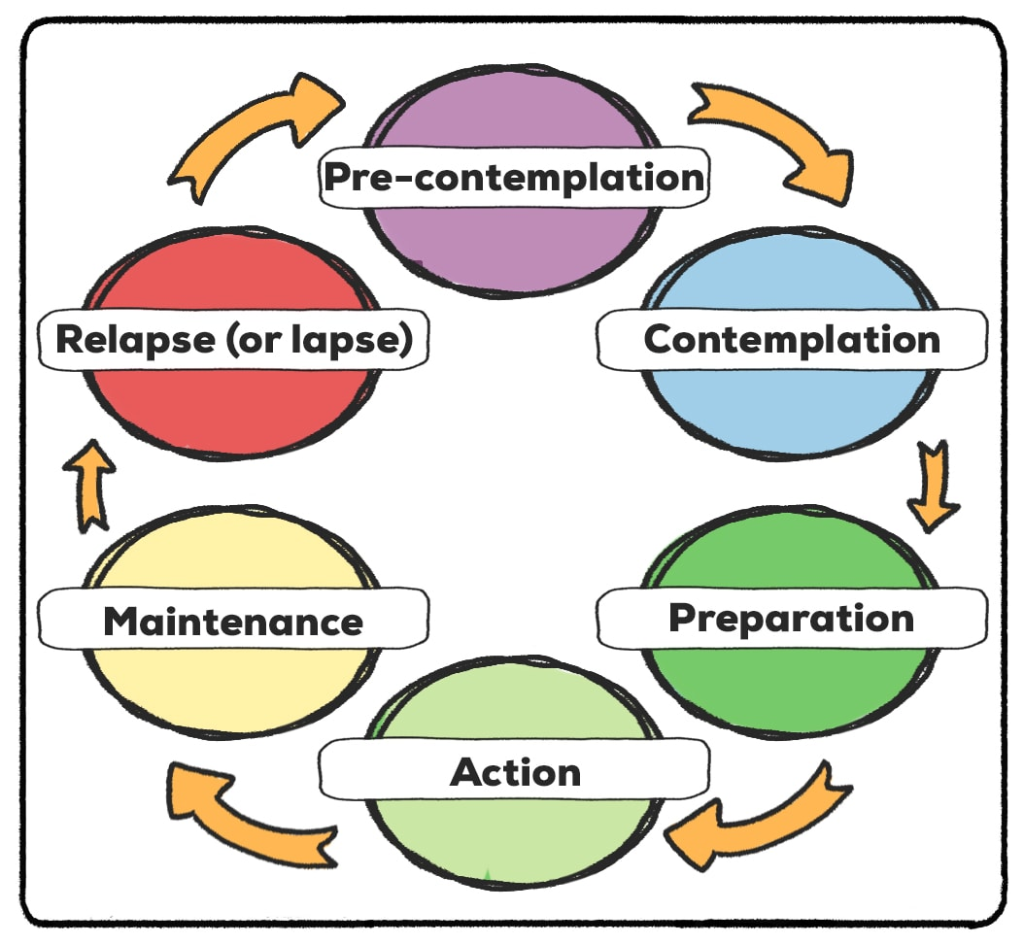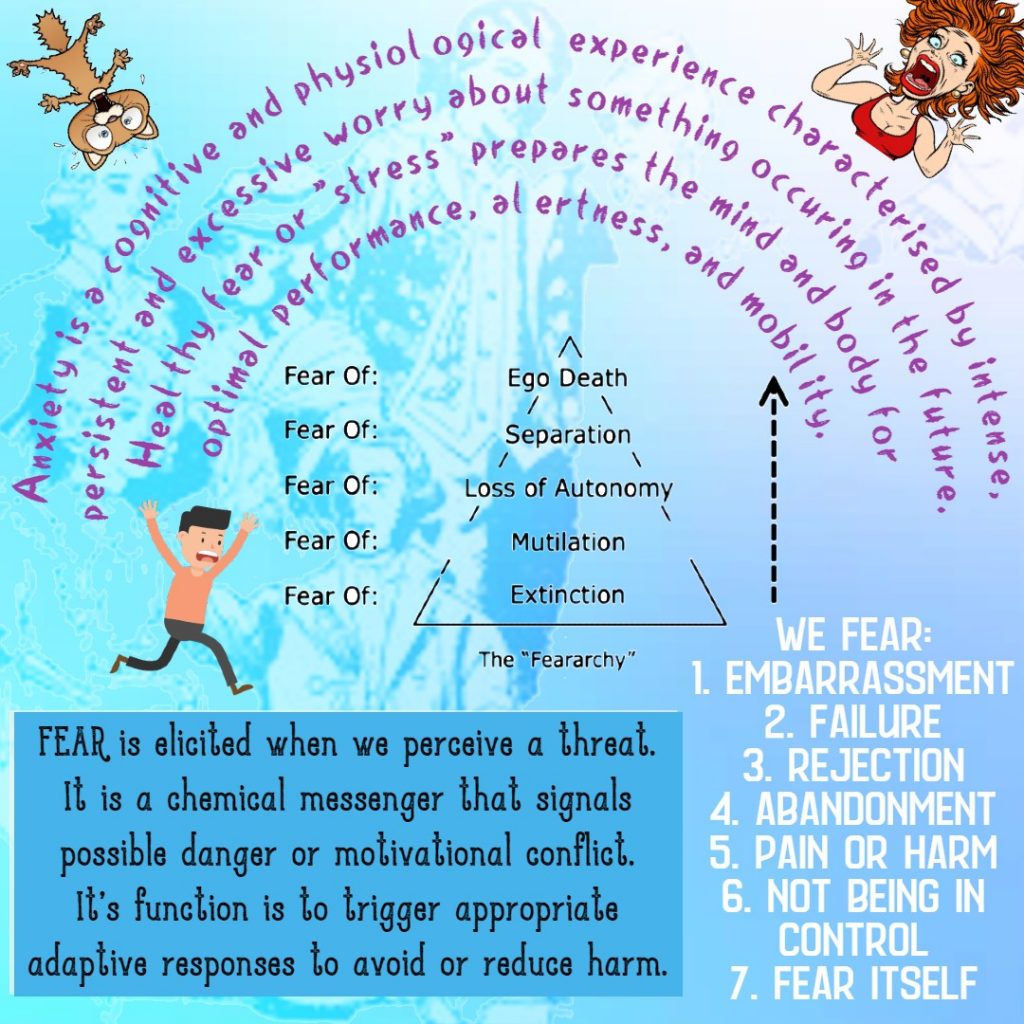
“Never be a prisoner of your past. Your past is a lesson, not a life sentence” – Robin Sharma

Related Post
Emotional Intelligence (EI)Emotional Intelligence (EI)
Emotional intelligence is defined as the ability to understand and regulate your own emotions, as well as identify and influence the emotions of others’. The term was first coined in 1990 by researchers John Mayer and Peter Salovey and was later popularised by psychologist Daniel Goleman.
Emotional intelligence (EI) is the ability perceive, control, and evaluate your emotions. Some people can do this with ease while others require practice in this area. This ability is necessary for anyone who wants to function effectively in a society – it pertains directly to our ability to interact well with others and respond effectively when situations are outside our control.
EI is best described as a way of thinking that enables people to perceive their own emotions, understand the emotional states of others, and behave appropriately in response (Cherry, 2022). People with high EI can feel empathy for others, determine their own emotional responses (including the process of suppressing an emotion as a defence mechanism), and think through situations before responding emotionally. Emotional intelligence is strongly linked to many positive outcomes. Those with high EI are likely to become financially stable, have meaningful and healthy relationships, respond effectively to stress, and maintain desirable physical and mental health (Salovey & Mayer, 1990). They are also likely to avoid dangerous situations (such as driving under the influence), interrupt negative thinking patterns, and use healthy coping skills rather than self-destructive or maladaptive coping mechanisms.
Here are some key features of a person with high emotional intelligence (Drigas & Papoutsi 2018):
– An ability to identify how they are feeling (i.e., the can name what they’re feeling)
– An ability to identify how others are feeling
– An awareness of strengths and weaknesses
– The ability to let go of mistakes and forgive others
– The ability to accept change
– Curiosity about oneself and others
– The capacity for empathy and compassion
– The ability to regulate emotions in the moment
The ability to regulate emotions is a skill that anybody can learn with practice.
How to develop emotional intelligence
The following tips may be helpful if you’re interested in developing or improving your emotional intelligence. Pioneers in the field Salovey and Mayer (1990) have identified four levels of emotional intelligence that are person should aim to move through in order – these are:
1. Perceiving emotions: The first step is to be able to acknowledge that emotions are occurring in the first place. This might involve understanding nonverbal signals from other people or associating internal bodily states with certain emotions. Some clients, especially those who have suffered from trauma, may have a sense of detachment from their bodies, making it difficult to discern emotional states. As such, this lack of internal data will make it harder to recognize emotional states in others. Practicing mindfulness and other self-awareness exercises can help clients to perceive their emotions more effectively.
2. Reasoning with emotions: Once an emotion has been identified, the second step is to learn how to think about emotions appropriately. Many people will shut down in the presence of strong emotions, but emotions can be used to promote thinking and cognitive activity. Developing a sense of curiosity and openness toward emotions can help to facilitate this process, and result in less aversion towards certain experiences.
3. Understanding emotions: The third step is understanding the meaning of emotions in more detail and recognising complex relationships between different emotions. Once emotions are perceived and reasoned with, a person can evaluate them and find the underlying causes of them. This is where emotional intelligence really starts to develop, as it fosters the ability to become less reactive to emotional content and learn to listen deeply to emotions and discern their origins.
4. Managing emotions: Finally, in the fourth step we learn to regulate emotions effectively. This involves a person developing their ability to problem-solve and identify healthy coping strategies for dealing with an emotion. It also involves being able to use the skills learnt in previous steps – perceiving, reasoning, and understanding – to resolve emotional conflicts peacefully. This is the highest level of emotional intelligence.
Generally, building emotional awareness through mindfulness helps to propagate EI within oneself, and learning to perceive nonverbal cues helps to attend to others; outlines of these two angles are as follows:
Building Emotional Awareness
Perceiving emotions is the foundational skill of emotional intelligence, and mindfulness has been identified by research as being one of the most efficacious ways of developing this capacity. Mindfulness involves paying attention to the present moment without judgement or interference. Mindfulness is correlated with greater clarity of feelings and thoughts, and less reactivity and distraction, making it the perfect catalyst for emotional intelligence (Feldman et al., 2007).
Mindfulness generally involves meditative exercises; you sit or lay down, and use the breath and other sensations (i.e., the feeling of feet on the floor, or sounds in the room) to anchor into the experience. As you enter an observational state, encourage yourself to simply notice how your experiences arise, change, and pass away. When using mindfulness to develop emotional awareness, specifically connect to your emotional state. The key focus here is not necessarily on the breath or on acceptance, as per common mindfulness strategies; rather, simply become familiar with the process of having and noticing feelings. If you have difficulty identifying your emotions, try to explore the characteristics of your emotions such as where it is located in the body, how it feels (e.g., warm, cold), how big or small it feels, or perhaps what colour they associate with it.
Regularly performing this exercise will habituate the brain to approach emotions with curiosity rather than avoiding or repressing them. As such, the processes of emotional functioning will become more familiar, resulting in greater emotional intelligence.
Decoding Emotions by Analysing Speech, Body, and Face
Created by Hugo Alberts, this exercise helps people to accurately identify and understand the emotions of other people through ‘reading’ their body language and other nonverbal cues. This is a very valuable skill, as research has shown that cultures all around the world express emotions through similar facial expressions (Friesen, 1972). Similarly, it has been found that deciphering body language can accurately provide insight into emotional states such as anger, fear, pride, joy, and more (Gelder & van der Stock, 2011). Speech patterns are a more nuanced area than body language and facial expressions, but valuable nonetheless; people use thousands of micro semantic terms to express their emotions beyond the words themselves (Sabini & Silver, 2005). By learning to attune to these three aspects of communication (i.e., face, body, speech), a person will be able to exercise enhanced emotional intelligence with the people in their life.
One activity to develop this skill is to use videos that you are familiar with (e.g., films or tv shows) and to spend time evaluating how the actors use speech, body, and face to communicate their emotions. Depending on your current level of EI, you might be able to identify the emotions being expressed but not understand the role of nonverbal cues to communicate this. Another strategy would be to become more self-aware of your own nonverbal conduct during different emotional experiences. Notice your posture, get a sense of your facial expression, notice your stance, hands, chest etc. You could keep a journal of what your speech, face, and body language is like during various experiences throughout the day. Over time, you will come to understand how to decipher these elements and associate them with emotional states. Please be patient with yourself. It is challenging to mindfully pause and think about your nonverbal language when you’re caught in an emotional experience. You may like to ask others whom you trust to give you feedback.
Additional skills
Having covered the internal (emotional awareness through mindfulness) and the external (nonverbal cues), you can then use these new understandings to develop further practical skills. A person can embody emotional intelligence by practicing empathy, active listening, and assertiveness.
Empathy
Empathy is the capacity to understand another person’s experience through their frame of reference (Cuff et al., 2014). Whilst an aspect of empathy is being able to relate other people’s experiences to your own, it is further positioning yourself within the other person’s perspective and relating to them from that place. This is what is meant by “putting yourself in someone else’s shoes.” Empathy is a useful skill to practice because it both requires and fosters emotional intelligence; EI is required to relate fully to another person and is developed further through this process. It is recommended to cultivate compassion for others when developing empathy. It can be an uncomfortable experience, one which people may resist or tense up against.
Active listening
Activate listening can help conversational partners interact in more meaningful ways. It offers people space to explore their feelings, disclose important information, and feel like they are heard, validated, and cared for. Joseph Topornycky has identified some fundamental attributes of active listening (2016). These include:
- Being non-judgmental: Reserving judgment allows speakers to exercise freedom in exploring and expressing their ideas and feelings.
- Patience: Being patient when somebody is speaking, and not rushing them or interrupting them, is crucial for them to feel heard and understood.
- Minimal encouragers: These are small indications of engagement, such as nods and smiles, as well as words like yep, mm-hmm, uh-huh, and more.
- Questions: Asking the person questions will show that you are interested in what has been said and are engaged enough to want to know more.
- Summaries: It can be a useful bonding behaviour to repeat what the person has just said back to them, but in different words.
Assertiveness
Assertiveness is often be perceived as rudeness, however, if the person communicating in an assertive way maintains a compassionate undertone, it is very effective for improving EI and self-esteem. Many people lack EI because they were never taught or encouraged to explore their emotions and express their feelings. By learning to express ourselves truthfully and appropriately, a person can validate themselves, protect themselves and set boundaries with others (Makino, 2010).
One way to practice this is through role playing with a counsellor or someone you trust. You can also practice by yourself, playing the role of both parties in an interaction. Practice expressing what is most important for you in a conversation and express the emotion e.g., “I feel worthless, like nobody cares about my opinion” and then offer yourself assurance as if you are the other person e.g., “I really value your opinion, and I am interested in hearing it.”).
If you’re someone who hasn’t been able to assert your needs, wants or feelings in the past, you may feel rude initially. Like I always tell my clients,
- self-awareness is always the first step so you may need to spend time meditating, educating yourself, or reflecting on what it is you’re feeling, what you want or need. The second step is to:
- identify what you think or feel you need to do
- allow that to be there (try not to resist your reality – what we resist persists)
- make an intention to ask for your needs or wants – or express your emotions with language
- act on your intention
References
Cherry, K. (2022, August 3). How emotionally intelligent are you? Verywell Mind. Retrieved from https://www.verywellmind.com/what-is-emotional-intelligence-2795423#citation-5
Cuff, B. M. P., Brown, S. J., Taylor, L., & Howat, D. J. (2014). Empathy: A review of the concept. Emotion Review, 8(2), 144–153. https://doi.org/10.1177/1754073914558466
De Gelder, B., van den Stock, J., Meeren, H. K. M., Sinke, C. B. A., Kret, M. E., & Tamietto, M. (2010). Standing up for the body: Recent progress in uncovering the networks involved in the perception of bodies and bodily expressions. Neuroscience and Biobehavioral Reviews, 34, 513–527.
Drigas AS, Papoutsi C. A new layered model on emotional intelligence. Behav Sci (Basel). 2018;8(5):45. doi:10.3390/bs8050045
Feldman, G., Hayes, A., Kumar, S., Greeson, J., & Laurenceau, J.-P. (2007). Mindfulness and emotion regulation: The development and initial validation of the Cognitive and Affective Mindfulness Scale-Revised (CAMSR). Journal of Psychopathology and Behavioral Assessment, 29, 177–190.
Friesen, W. V. (1972). Cultural differences in facial expression in a social situation: An experimental test of the concept of display rules. Unpublished doctoral dissertation. University of California San Francisco
Gosling, M. (n.d.). MSCEIT 1 Mayer-Salovey-Caruso Emotional Intelligence. Retrieved from https://www.mikegosling.com/pdf/MSCEITDescription.pdf
Makino, H. (2010). Humility-empathy-assertiveness-respect test. PsycTESTS Dataset. https://doi.org/10.1037/t06420-000
Mayer, J. D., Salovey, P., & Caruso, D. R. (2012). Mayer-Salovey-Caruso emotional intelligence test. PsycTESTS Dataset. https://doi.org/10.1037/t05047-000
Sabini, J., & Silver, M. (2005). Why emotion names and experiences don’t neatly pair. Psychological Inquiry, 16, 1-10.
Salovey P, Mayer J. Emotional Intelligence. Imagination, Cognition, and Personality. 1990;9(3):185-211.
Topornycky, J. (2016, June). Balancing openness and interpretation in active listening – researchgate. Retrieved October 23, 2022, from https://www.researchgate.net/publication/315974687_Balancing_Openness_and_Interpretation_in_Active_Listening
The stages of change modelThe stages of change model
‘The stages of change model’ was developed by Prochaska and DiClemente. Heard of them? It informs the development of brief and ongoing intervention strategies by providing a framework for what interventions/strategies are useful for particular individuals. Practitioners need an understanding of which ‘stage of change’ a person is in so that the most appropriate strategy for the individual client is selected.
There are five common stages within the Stages of Change model and a 6th known as “relapse”:
1. In the precontemplation stage, the person is either unaware of a problem that needs to be addressed OR aware of it but unwilling to change the problematic behaviour [or a behaviour they want to change. It does not always have to be labelled as “problematic”].
2. This is followed by a contemplation stage, characterized by ambivalence regarding the problem behaviour and in which the advantages and disadvantages of the behaviour, and of changing it, are evaluated, leading in many cases to decision-making.
3. In the preparation stage, a resolution to change is made, accompanied by a commitment to a plan of action. It is not uncommon for an individual to return to the contemplation stage or stay in the preparation stage for a while, for many reasons.
4. This plan is executed in the action stage, in which the individual engages in activities designed to bring change about and in coping with difficulties that arise.
5. If successful action is sustained, the person moves to the maintenance stage, in which an effort is made to consolidate the changes that have been made. Once these changes have been integrated into the lifestyle, the individual exits from the stages of change.
6. Relapse, however, is common, and it may take several journeys around the cycle of change, known as “recycling”, before change becomes permanent i.e., a lifestyle change; a sustainable change.
(Adapted from Heather & Honekopp, 2017)


